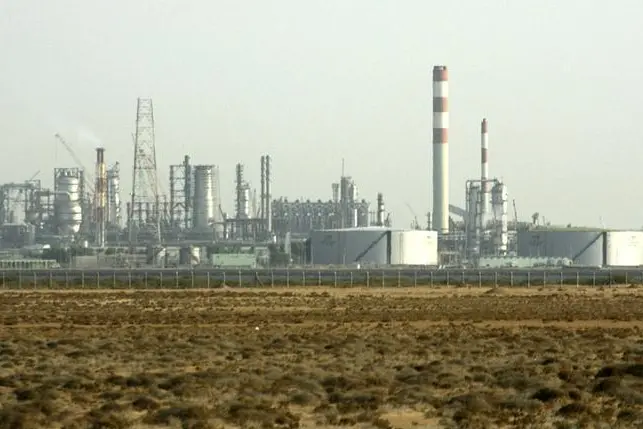PHOTO
OPEC oil output rose in July, a Reuters survey found on Friday, as a rebound in Saudi Arabian supply and small increases elsewhere offset the impact of ongoing voluntary supply cuts by other members and the wider OPEC+ alliance.
The Organization of the Petroleum Exporting Countries pumped 26.70 million barrels per day (bpd) last month, up 100,000 bpd from June, according to the survey based on shipping data and information from industry sources.
The increase comes despite OPEC+, which comprises OPEC and allies such as Russia, keeping in place most of its output cuts until the end of 2025 to bolster the market in the face of tepid demand growth, high interest rates and rising U.S. production.
A meeting of top OPEC+ ministers on Thursday kept oil output policy unchanged including a plan to start unwinding one layer of output cuts from October, and repeated that the hike could be paused or reversed if needed.
Saudi Arabia provided the largest supply boost last month of 70,000 bpd, the survey found, as exports rebounded from June when they were lower than expected. Production reached 9 million bpd in July, close to the kingdom's target.
Nigeria had the biggest decline of 30,000 bpd, with exports lower month on month, the survey found.
Small increases came from Libya and Iran, two of the members not required to cut output, and from Iraq. Iranian output reached 3.22 million bpd, the survey found, the highest since 2018 according to Reuters surveys.
Iran has been boosting exports in the last few years despite U.S. sanctions remaining in place. Iraq's output edged higher with exports increasing month on month, flows data showed and a tanker-tracking source said.
OPEC pumped about 240,000 bpd more than the implied target for the nine members covered by supply cut agreements, with Iraq still accounting for the bulk of the excess, the survey found.
The Reuters survey aims to track supply to the market and is based on shipping data provided by external sources, LSEG flows data, information from companies that track flows - such as Petro-Logistics and Kpler - and information provided by sources at oil companies, OPEC and consultants.
(Additional reporting by Ahmad Ghaddar Editing by Kirsten Donovan)





















